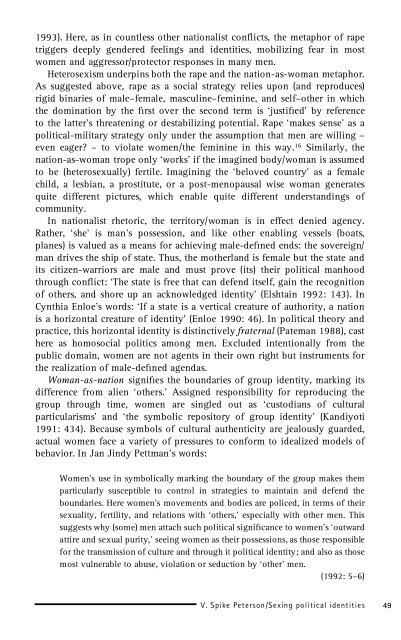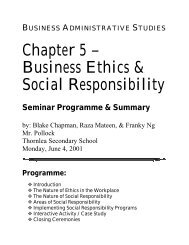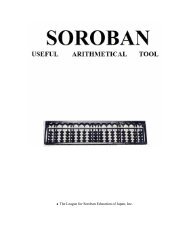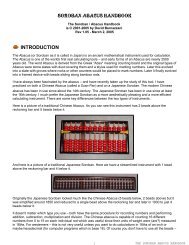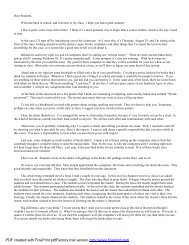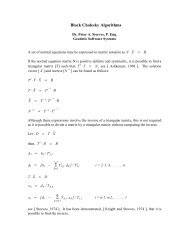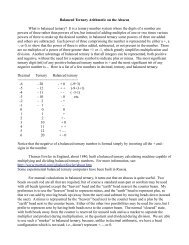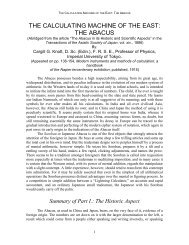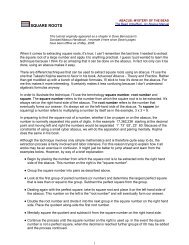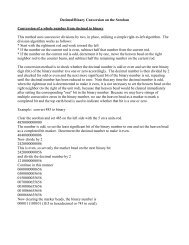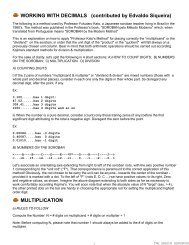Sexing Political Identities-Nationalism as Heterosexism.pdf
Sexing Political Identities-Nationalism as Heterosexism.pdf
Sexing Political Identities-Nationalism as Heterosexism.pdf
Create successful ePaper yourself
Turn your PDF publications into a flip-book with our unique Google optimized e-Paper software.
1993). Here, <strong>as</strong> in countless other nationalist conicts, the metaphor of rape<br />
triggers deeply gendered feelings and identities, mobilizing fear in most<br />
women and aggressor/protector responses in many men.<br />
<strong>Heterosexism</strong> underpins both the rape and the nation-<strong>as</strong>-woman metaphor.<br />
As suggested above, rape <strong>as</strong> a social strategy relies upon (and reproduces)<br />
rigid binaries of male–female, m<strong>as</strong>culine–feminine, and self–other in which<br />
the domination by the rst over the second term is ‘justied’ by reference<br />
to the latter’s threatening or destabilizing potential. Rape ‘makes sense’ <strong>as</strong> a<br />
political-military strategy only under the <strong>as</strong>sumption that men are willing –<br />
even eager? – to violate women/the feminine in this way. 16 Similarly, the<br />
nation-<strong>as</strong>-woman trope only ‘works’ if the imagined body/woman is <strong>as</strong>sumed<br />
to be (heterosexually) fertile. Imagining the ‘beloved country’ <strong>as</strong> a female<br />
child, a lesbian, a prostitute, or a post-menopausal wise woman generates<br />
quite different pictures, which enable quite different understandings of<br />
community.<br />
In nationalist rhetoric, the territory/woman is in effect denied agency.<br />
Rather, ‘she’ is man’s possession, and like other enabling vessels (boats,<br />
planes) is valued <strong>as</strong> a means for achieving male-dened ends: the sovereign/<br />
man drives the ship of state. Thus, the motherland is female but the state and<br />
its citizen-warriors are male and must prove (its) their political manhood<br />
through conict: ‘The state is free that can defend itself, gain the recognition<br />
of others, and shore up an acknowledged identity’ (Elshtain 1992: 143). In<br />
Cynthia Enloe’s words: ‘If a state is a vertical creature of authority, a nation<br />
is a horizontal creature of identity’ (Enloe 1990: 46). In political theory and<br />
practice, this horizontal identity is distinctively fraternal (Pateman 1988), c<strong>as</strong>t<br />
here <strong>as</strong> homosocial politics among men. Excluded intentionally from the<br />
public domain, women are not agents in their own right but instruments for<br />
the realization of male-dened agend<strong>as</strong>.<br />
Woman-<strong>as</strong>-nation signies the boundaries of group identity, marking its<br />
difference from alien ‘others.’ Assigned responsibility for reproducing the<br />
group through time, women are singled out <strong>as</strong> ‘custodians of cultural<br />
particularisms’ and ‘the symbolic repository of group identity’ (Kandiyoti<br />
1991: 434). Because symbols of cultural authenticity are jealously guarded,<br />
actual women face a variety of pressures to conform to idealized models of<br />
behavior. In Jan Jindy Pettman’s words:<br />
Women’s use in symbolically marking the boundary of the group makes them<br />
particularly susceptible to control in strategies to maintain and defend the<br />
boundaries. Here women’s movements and bodies are policed, in terms of their<br />
sexuality, fertility, and relations with ‘others,’ especially with other men. This<br />
suggests why (some) men attach such political signicance to women’s ‘outward<br />
attire and sexual purity,’ seeing women <strong>as</strong> their possessions, <strong>as</strong> those responsible<br />
for the transmission of culture and through it political identity; and also <strong>as</strong> those<br />
most vulnerable to abuse, violation or seduction by ‘other’ men.<br />
(1992: 5–6)<br />
V. Spike Peterson/<strong>Sexing</strong> political identities 49


